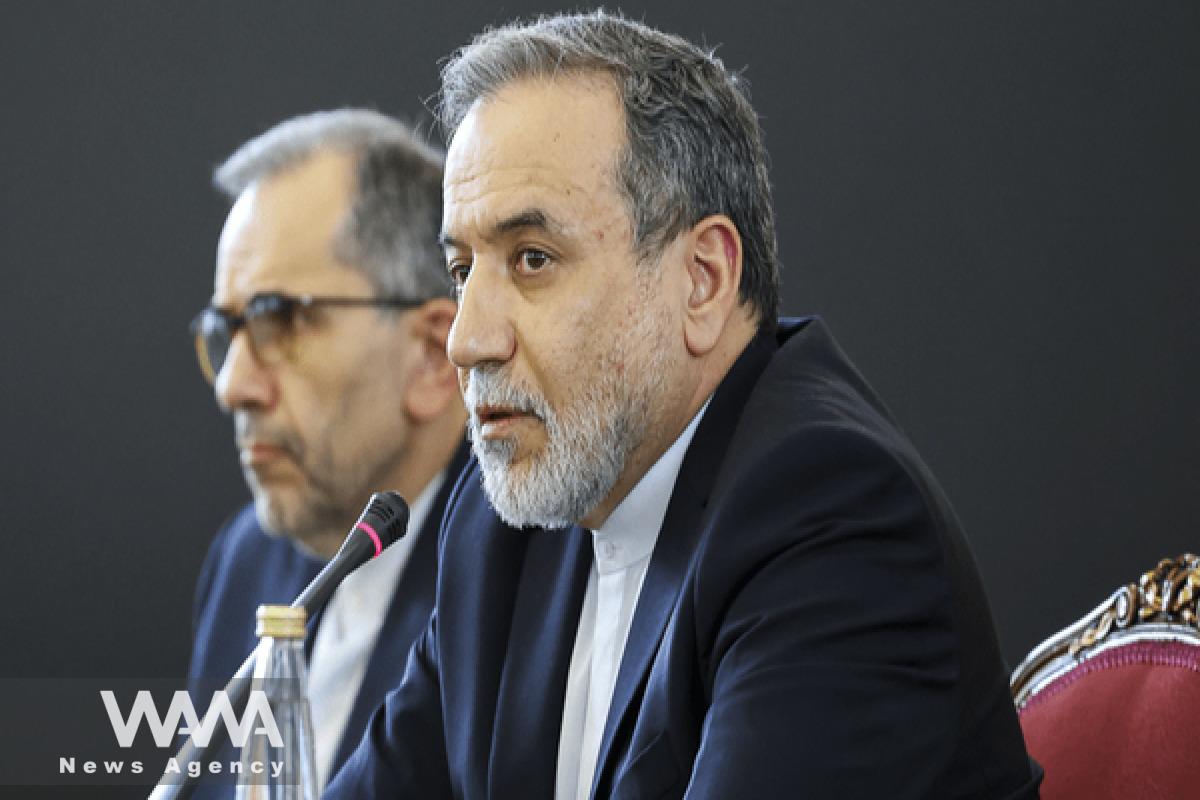WANA (Oct 05) – Iranian Foreign Minister Seyed Abbas Araghchi held a meeting today (Sunday, October 5, 2025) with ambassadors, chargés d’affaires, and heads of international missions based in Tehran to explain recent developments in foreign policy, particularly following the activation of the snapback mechanism — the reimposition of previously terminated UN Security Council resolutions against Iran.
During the meeting, Araghchi elaborated on the recent developments in New York on the sidelines of the 80th session of the UN General Assembly, where the snapback mechanism was triggered. He also referred to the past negotiations that led to the Joint Comprehensive Plan of Action (JCPOA).
This was Araghchi’s first meeting with the diplomatic corps in Tehran since the activation of the snapback mechanism.
Araghchi’s Meeting with Foreign Ambassadors. 05 Oct 2025. Social Media / WANA News Agency
On Friday night, September 28, the UN Security Council voted on a draft resolution proposed by Russia and China to extend Resolution 2231 for another six months (until April 18, 2026). The draft received four votes in favor (Russia, China, Pakistan, and Algeria), two abstentions (South Korea and Guyana), and nine votes against (France, the United Kingdom, the United States, Sierra Leone, Slovenia, Denmark, Greece, Panama, and Somalia). The resolution ultimately failed to pass.
As a result, in the early hours of Sunday, September 28, the previously terminated resolutions — 1696 (2006), 1737 (2006), 1747 (2007), 1803 (2008), 1835 (2008), and 1929 (2010) — were reinstated.

